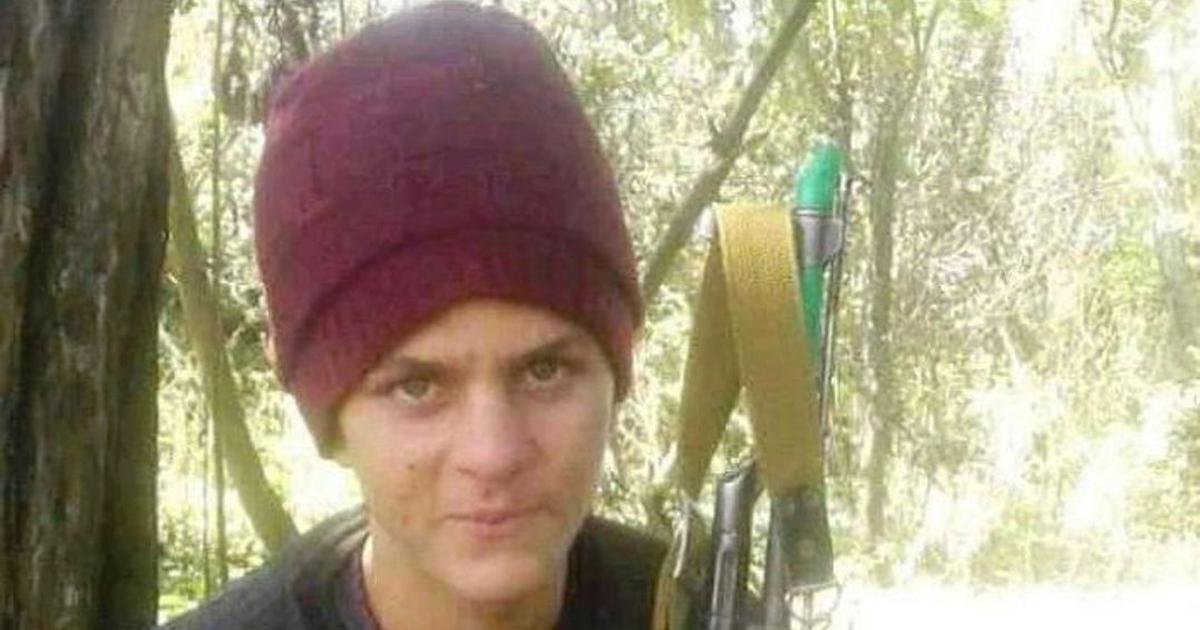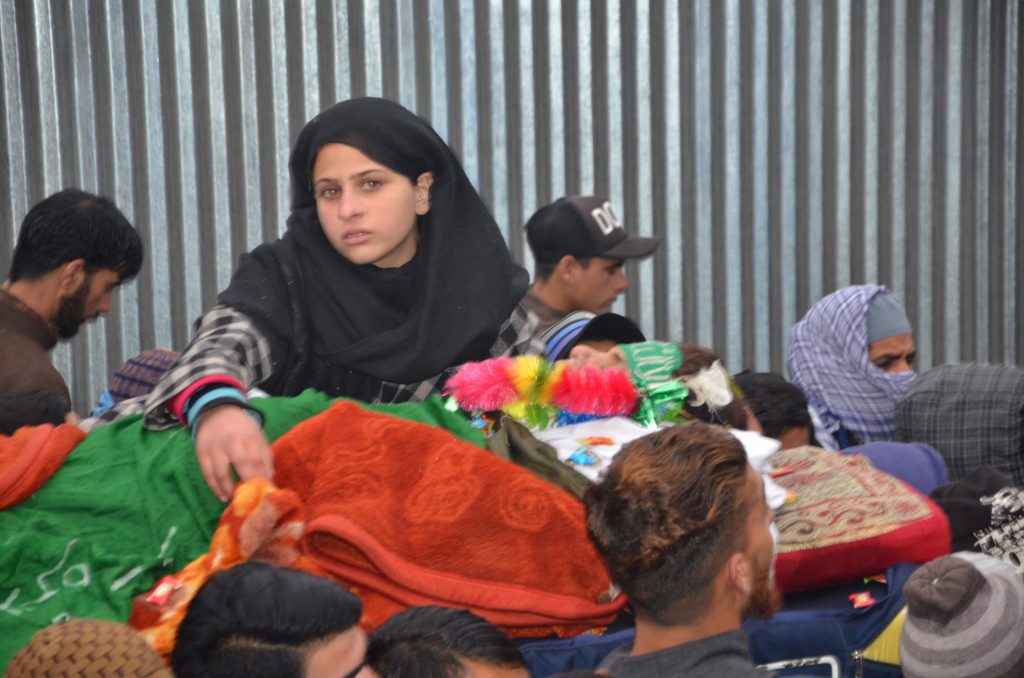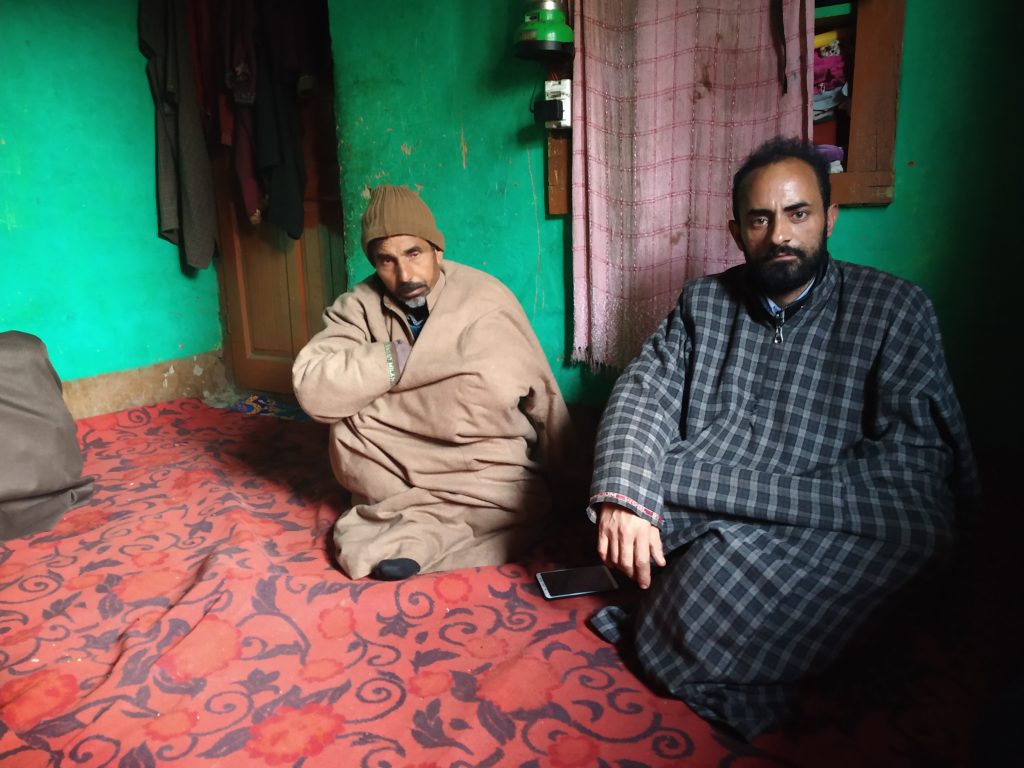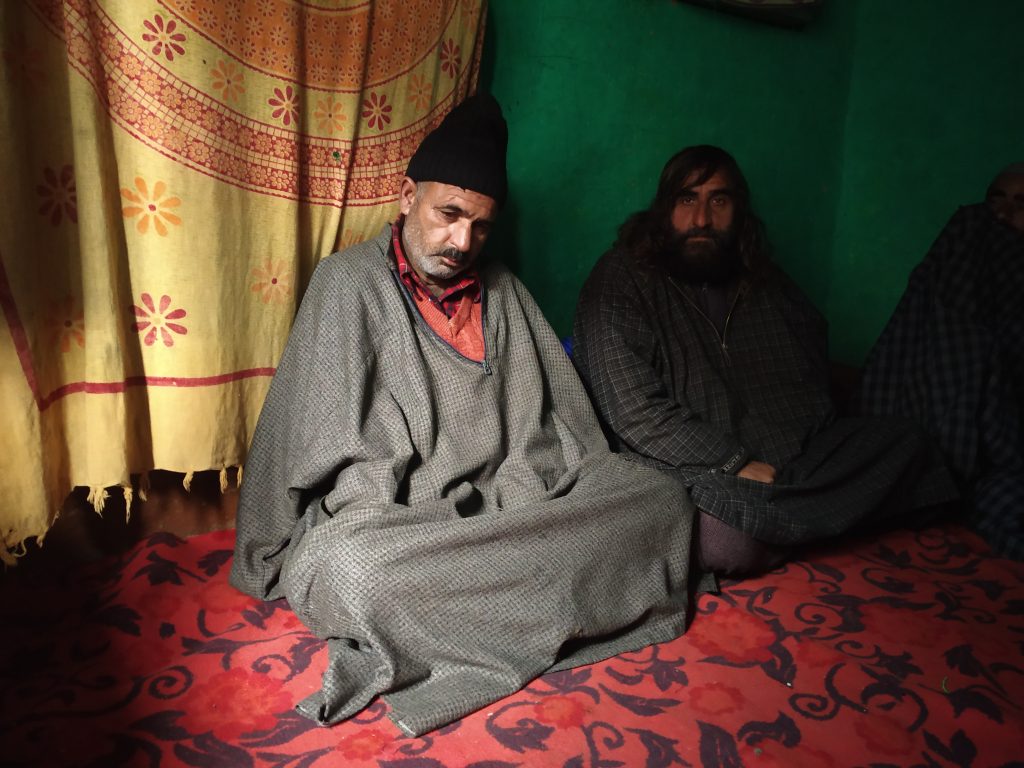‘My son, 14, was forced to pick up the gun ' Part III of Kashmir teenagers' stories

What are many Indian teengaer’s biggest concerns when they are 15 years old? Homework? Upcoming exams? Family pressures? No We do not need an expert to tell us that teenagers are subject to extreme social pressures. Now, imagine all these issues and place it in the context of a conflict that has been raging in your region for as long as you can remember; for as long as your parents can remember.
No one has an easy life in Kashmir, but can we even begin to imagine the kind of pressure, anger, disbelief, frustration and general helplessness that a school student in Kashmir undergoes? A student in a town like Shopian, for example, might consider himself lucky just to be alive: they have seen their friends being shot, injured, and arrested. As a Kashmiri teenager, what do you do? Not protest against the occupation? That might still get you caught in a crossfire. Keep quiet and focus on your studies? How do you do that when there is an encounter happening right next to your house? Or when tear gas shells land inside your house? In December, two teenagers--Saqib Majeed and Mudassir Paray--became another statistic in Kashmir. They were killed in an encounter with security forces and Indian media barely noticed the fact that the two ‘militants’ were 17 and 14 years old It made no difference. What forces a 15-year-old to pick up a gun? What forces a 12-year-old to pick a stone to hurl at security forces? What makes a 17-year-old believe that death at the hands of Indian forces is a better option that living a ‘normal’ life? In this 6-part series, TwoCircles.net’s Kashmir correspondent Auqib Javeed looks at all the aspects of being a teenager in Kashmir: a militant, a protester, a mere bystander and a victim. If you pick a gun, you will be labelled a militant and shot; if you pick a stone, you will be labelled ‘anti-India’ and arrested and put in juvenile homes. If you are lucky, you will only be beaten up a little; if you are not, you will end up with bruises that will never leave you. And if you do neither, you still stand a very high chance of ending up being arrested or killed.In the third of the six-part series, we speak to the family of Mudassir Ahmed Parray, who recently achieved the dubious title of the youngest militant killed in an encounter in Kashmir. At 14, Parray should have been in school but instead was shot dead by security forces along with Saqib. Although both are from the village of Hajin, the reaction of Parray's family is markedly different from that of Saqib's family.
Hajin, Bandipora: Soon after Fareeda begum heard that her 14-year-old son Mudasir Ahmad Parray had joined militancy, she could not stop crying. All she wanted was her son to return “come what may” but on December 8, she heard the news she had been dreading: her son had been killed in an encounter. Mudasir was killed alongside two other militants, one from his area and another from Pakistan. Parray, a ninth-grade student went missing in August before emerging in a photograph on social media brandishing an automatic assault rifle.
[caption id="attachment_428851" align="alignnone" width="640"] Sister of slain militant Mudasir Parray accompanies the body of her brother during a funeral procession( Pic: Sajjad Raina)[/caption]
Sister of slain militant Mudasir Parray accompanies the body of her brother during a funeral procession( Pic: Sajjad Raina)[/caption]
“Joining militancy is so easy now here that even a minor who doesn’t understand the complexities of conflict picks-up arms to fight the world second-largest army,” said an uncle of Mudasir.
He says Mudasir and Saqib could have been counselled and saved easily. According to him, it would have been difficult for forces to persuade the teenagers to surrender “but they preferred to kill them, striking more passion among the youth of the valley,” he says. “What could a 14-year-old do inside a house surrounded by hundreds of security forces armed with heavy ammunition?” he asks.
At 14, Mudasir was the youngest known fighter to have died in the insurgency. His father Abdul Rashid Parray, who was attending guests in his house, says he was once detained by police and kept in lock-up for 10 days. Rashid was then summoned by a Police officer, who abused him in front of Mudasir.
“I had had a back surgery just three days before and the police officer dragged me in the custody...I was kept there for three days without any reason. The officer abused my daughter in front of my son, that really hit him,” says Rashid.
He believes that the “horrible events” unfolding around the people of Kashmir on daily basis may have impacted the minds of Mudasir and Saqib and pushed them towards the gun.
[caption id="attachment_428843" align="alignnone" width="640"] Mudasir’s uncle Tariq Ahmad who approached the Jammu and Kashmir Police along with his neighbours for his dead body:( Pic Auqib Javeed/TwoCircles.net)[/caption]
Mudasir’s uncle Tariq Ahmad who approached the Jammu and Kashmir Police along with his neighbours for his dead body:( Pic Auqib Javeed/TwoCircles.net)[/caption]
Mudasir’s uncle Tariq Ahmad who approached the Jammu and Kashmir Police along with his neighbours for his dead body alleges that his nephew’s body was charred and after seeing his charred body, his neighbours advised not to unpack the corps as his mother would not be able to bear the sight.
“Such was the condition of his body, his legs were fully burned. We wrapped his body and decided not to uncover it as it was unbearable,” Tariq says.
Besides attending a school, Mudasir also worked as a labourer to support his family. He is survived by his ailing parents, a handicapped brother and a 10-year-old sister.
[caption id="attachment_428849" align="alignnone" width="640"] House of Mudasir Rashid Parray(Pic: Auqib Javeed/ TwoCircles.net)[/caption]
House of Mudasir Rashid Parray(Pic: Auqib Javeed/ TwoCircles.net)[/caption]
“They (forces) are so cruel that they didn’t even leave his body after killing,” Tariq says, adding that nobody would raise a voice against their brutality.
Tariq believes a teenager must be handled with care and be heard. “Even if Mudasir had touched the Pakistani flag or even if he was a stone pelter, he should have been counselled but they(Indian state) pushed him to the wall.”
“At an age when a child should have toys, pens and books in hands, our kids have guns,” said Abdul Rashid.
[caption id="attachment_428844" align="alignnone" width="640"] Abdul Rashid Parray, father of Mudasir Parray at his home in Hajin( Pic Auqib Javeed/TwoCircles.net)[/caption]
Abdul Rashid Parray, father of Mudasir Parray at his home in Hajin( Pic Auqib Javeed/TwoCircles.net)[/caption]
He suggested that youngsters like Mudasir and Saqib need to be identified at an early stage, counselled and ensure they don’t get involved in the bloodshed.
This year has been the deadliest in a decade in Kashmir, with over 227 militant killing since January 2018. The valley continues to lose its younger generation in this never-ending cycle of bloodshed. This is not the first time that minors have picked up guns in the Valley. The poster boy of Kashmir militancy, Burhan Wani, was only 15 years old when he joined militancy. Apart from Burhan, many other teenagers have joined the militant ranks and have been killed in encounters.
A senior police official while speaking to TwoCircles.net said, “Saqib and his friend Mudasir were motivated by Ali Bhai of Pakistan to join the Lashkar-e-Taiba. They left the home on August 31 and were active for three months.” When asked why couldn’t the police persuade them to surrender, he said, “We tried our best but they refused to do so.”
